Regular readers will know I’ve been looking for a new name for my weekly Sunday posts. I’ve decided on “Winner of the Week” for Bouquet/Saint. And because he put in so many suggestions I had to choose one of Paxton Marshall’s for Brickbat/Sinner, so I’m going with “Worry of the Week.”
Friday saw the 14th anniversary of 9/11 – the day in 2001 when members of Al Qaeda made suicide attacks on the United States, killing thousands of innocent people.
The idea of terrorist attacks is to create terror amongst civilians and to some extent, these ones succeeded. The Islamists have made a small amount of progress towards their goal of removing dictatorships in that they claim the toppling of Mubarak in Egypt and Qaddafi in Libya as successes of their tactics. They also want to destroy the USA and its allies, eliminate Israel, and get rid of Shi’a Islam. Their desire is to make the whole Middle East a single Sunni Islam state under Sharia, although they consider the one declared by DAESH to be illegitimate. (They have recently said they’ll work with them against their shared enemies though.) Some of their tactics have worked, as Ken points out in the comments. But the aims of Al-Qaeda are short-term and do nothing for wider Islam.
The goal of Islam (although not all Muslims) is to be the religion of all. 9/11 brought Islam to the attention of millions who had previously ignored it but has anything been achieved towards spreading Islam? Absolutely nothing.
In fact, it is Islam that has suffered. Al-Qaeda and their fellow Islamists have done more to damage Islam that would have been thought possible prior to 9/11.
Hundreds of thousands of Muslims, the vast majority of whom were as innocent as those killed on 9/11, have been killed as a result both by the Western military and fellow Muslims in the form of Islamist terrorists.
Further, the image of Islam has suffered substantially. Many non-Muslims now associate all Muslims with the actions of the extremists, and they suffer as a result. Muslims are regularly the victims of abuse, bullying, prejudice and bigotry simply because they share a religion with those who are currently the world’s worst terrorists. Some members of other religions, for example the Sikhs, are also suffering just because their men wear turbans, and ignorant people assume by their appearance they are Muslim.
Personally, I don’t think it’s possible for Islam to ever become the world’s religion. Too much of what it teaches just goes against human nature. People want to be free. The only reason Christianity has retained any power in those countries that currently dominate the world is that it has embraced so many of the values of the Enlightenment. I believe secularism and humanism are natural states for humanity to adopt. You just can’t hold people in thrall forever. Now that technology has advanced to a stage that information is more and more available, regimes that rely on domination and brainwashing cannot last.
There is a world Democracy Index. You can see the full index here. Currently 24 countries have achieved a “full democracy” rating, and they are ranked thus (out of a score of 10):
And here are the bottom 24 (note they are in reverse order, with the worst at the top):
This isn’t all the countries in the authoritarian regime category – there are another 28!
The worst is North Korea. Their leaders retain their power by almost completely denying their people access to the rest of the world. There is no internet, no cell phones, information is controlled. The people are taught from birth that the leader is a divine being, and they have no reason not to believe it. The vast majority of the authoritarian regimes are Muslim majority countries. All the authoritarian regimes in some way control the information available to their people in a major way. That’s not to say it doesn’t happen in full democracies too, but there’s a lot less of it.
So even though we still have a lot of non-democratic countries, the important thing is the trend. There are now more democracies in the world than there were in 2001, although the rate of increase is much slower than it was in previous decades. Many of them are still flawed, but you can’t change things like this overnight. We in New Zealand are sitting at number 4 on the list – it doesn’t get much better. As New Zealanders we appreciate how lucky we are, but at the same time we recognize we’re far from perfect, and I think we have a culture that’s continually trying to improve things.
Freedom House has been measuring freedom based on several criteria since 1973, and their reports show there has been progress too, albeit slow, in that time:
9/11 might have leveled things off a bit as countries like the United States and Great Britain in particular increased security operations, but the world isn’t less free.
This is the 2014 Democracy Index Map:
It’s obvious to anyone looking at this map that it’s mainly Muslim countries where democracy is lacking.
Reporters Without Borders (RSF – Reporters sans Frontières) assess world press freedom annually. Although there has been an improvement since 2001, recently there has been a reduction all over the world. The top countries have retained their positions – Finland has been first for the last five years, and Norway and Denmark have shared second and third between them. New Zealand is 6th out of the 180 countries measured, which is our best score since at least 2001. Canada is 8th, Ireland is 11th, Australia is 25th, United Kingdom is 34th, and the United States is 49th. The terrorists haven’t stopped us speaking out though, despite attempts like the Charlie Hebdo massacre, the constant assassination attempts on Danish cartoonist Kurt Westergaard of Jyllands-Posten, the arrest of Raif Badawi and more.
As far as economic freedom goes, the Heritage Institute considers only five countries in the world completely free:
Most other Western countries come into the second category of mostly free, which can be viewed here. (Canada is 6th, Ireland 9th, United States 12th, and the United Kingdom 13th.) Some of the wealthier Muslim countries are in this category too, like Saudi Arabia and the UAE, but the correlation is obvious – democratic freedom leads to economic wealth. One of the reasons Muslim countries can’t get into the top spots is because they limit the economic (and other) activity of their women to a greater extent than other nations. There are multiple reports that show “allowing” (as if men had the right to stop them) women to work makes an enormous difference to the well-being of society, and not just in economic terms. One of the greatest benefits is in the mental health of women who develop confidence and a sense of worth from their achievements outside the home.
The Cato Institute published an Index of Freedom of the World (see Table 2, pages 63-65) in 2013. In that one New Zealand came in at number one. Australia was 4th, Canada 5th, Ireland 6th, USA 7th, and the United Kingdom 18th. As described by Wikipedia:
The index is based on measures of freedom of speech, freedom of religion, individual economic choice, freedom of association, freedom of assembly, violence and crimes, freedom of movement, LGBT rights and women’s rights. Other components of the Freedom Index include human trafficking, sexual violence, female genital mutilation, homicide, freedom of movement, and adoption by homosexuals.
The point of all these graphs, tables and statistics is that freedom throughout the world has continued to rise. The ever-increasing terrorist activity by Islamist extremists has not stopped that progress. And it hasn’t made the world more religious, let alone more Islamic.
In the fourteen years since 9/11, the world has turned from the Abrahamic God in increasing numbers. They are becoming less religious, and more and more are recognizing the reality that there is no god. In 2001, only the Netherlands had legalized same-sex marriage. (Several countries had same-sex civil unions.) Now look at the list:
Argentina — 2010
Belgium — 2003
Brazil — 2013
Canada — 2005
Denmark — 2012
England (UK) — 2013
Finland — 2015
France — 2013
French Guiana — 2013
Greenland — 2015
Iceland — 2010
Ireland — 2015
Luxembourg — 2014
Mexico — 2015
The Netherlands — 2000
New Zealand — 2013
Norway — 2009
Portugal — 2010
Scotland (UK) — 2014
South Africa — 2006
Spain — 2005
Sweden — 2009
United States — 2015
Uruguay — 2013
Wales (UK) — 2013
Even in the Muslim world, where theocracies try to suppress even the thoughts of their people, reality is taking hold. People there don’t necessarily want to be rid of Islam, but they do want to be rid of its extreme forms. The desire of the majority is clearly for democratic, representative government where human rights are respected.
Amongst the religious, Islam is spreading faster than any other religion, but that isn’t because people are converting. The Muslim population is simply reproducing naturally at a much faster rate than any other group. Based on current trends the Pew Research Institute estimates their numbers will have almost reached those of Christians by 2050.
This survey was carried out in collaboration with the Templeton Global Initiative and although Pew in non-partisan, I think they have underestimated the likely number of unaffiliated people. Because of poverty and government control, there are many parts of the Muslim world where the reach of technology has only just started, or hasn’t started at all. Education, especially of women, is also limited in those same areas. I think that as this occurs, the number of people unaffiliated with a religion will grow faster than they have estimated.
Their estimates for New Zealand show, in my opinion, a faith bias. The Pew Research Center estimates that while the number of Muslims in New Zealand will more than triple to 160,00 by 2050 (probably accurate), the number of unaffiliated will increase to more than 2.6 million – around 45% of the population. That would make them the biggest group in the population, surpassing even Christians. Pew made its assessments based on 2010 data and I think they’ve underestimated the likely number of the unaffiliated. For example, they assessed that it would take until 2020 for the number of unaffiliated to reach around 39.7% of the population. However, the 2013 census showed that the number of unaffiliated had already reached 41.9%.* The unaffiliated do have less children than other groups, but that is not where most of them come from. They leave religion, and they are doing so in ever-increasing numbers.
More and more Muslims are moving to Western countries. A majority of these are doing so because although they don’t want to leave Islam, they do want to live in an open, democratic society. Whether or not people are religious, there will always be some who are good, and some who are bad. Most people just want to get on with their lives. Therefore humanity will continue to move in the direction of countries like ours where it’s possible to live your life in peace whatever your race, religion, ethnicity, sexual orientation or sexual identity. It continues to be harder for some people than others, and we need to work on that, but we are moving in the right direction. Once people have tasted freedom, they do not choose to return to oppression. The Islamists have no chance of success long-term.
*Note: In 2006, the number of unaffiliated in New Zealand was 34.6%, and in 2001 it was 29.6%. The 2011 census was delayed until 2013 because of the disruption of the Christchurch earthquake.

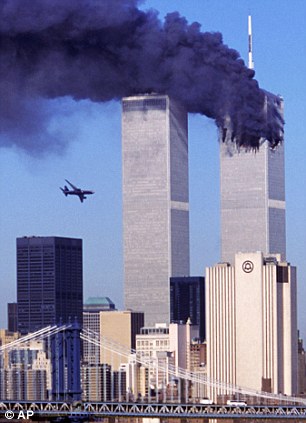
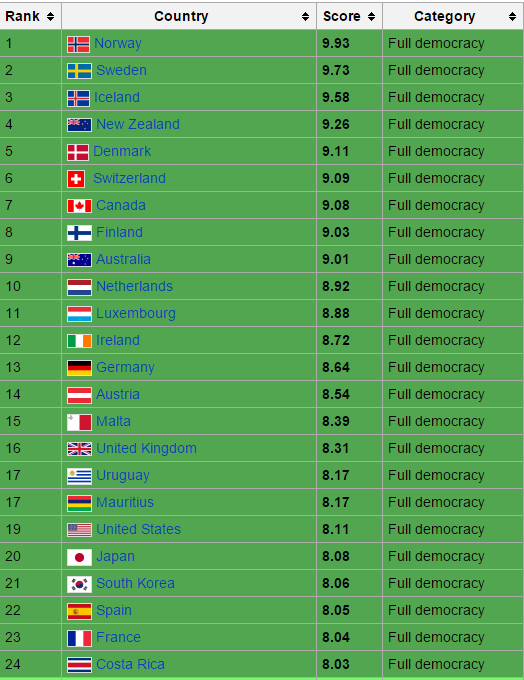
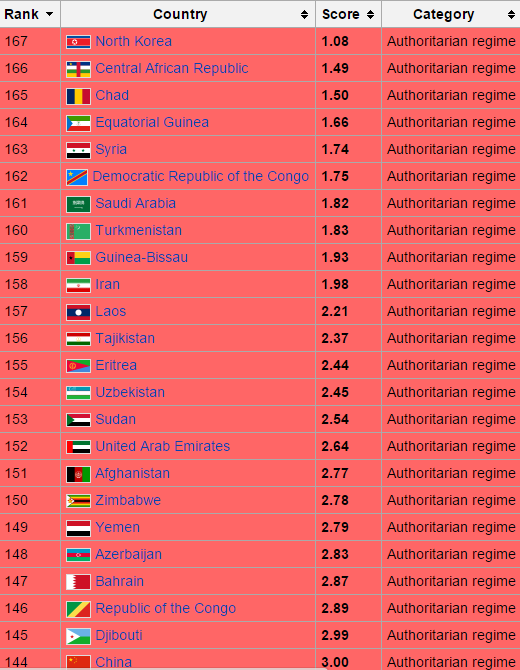
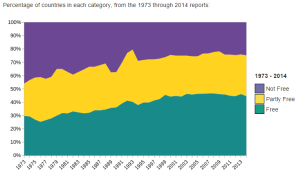
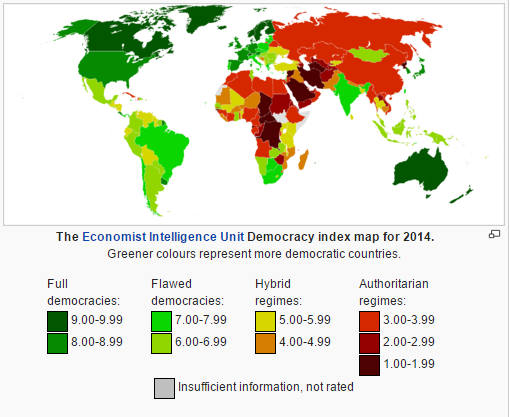
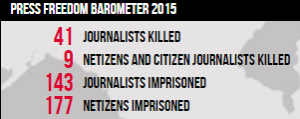

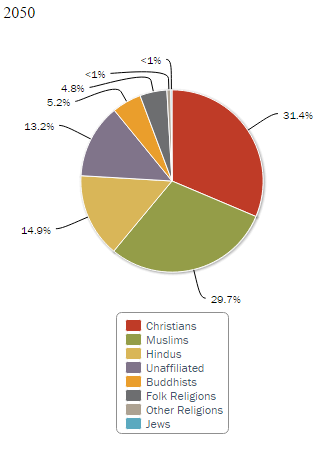
Heather, there’s plenty here that I have no issue with, but your starting point that the goal of al Qaeda with 9/11 was to spread Islam around the world just isn’t true. Robert Fisk documented in his discussions with bin Laden three reasons for his turning against the US:
– support for Israeli oppression of Palestinians
– sanctions in Iraq that killed more than a million people
– US troops stationed in Saudi holy lands
More specifically, he told Fisk his intent in attacking the US on 9/11 was to create an over-response in the Mid-East so large that it would destabilise and topple “corrupt Arab govts” like Saudi.
Judged against this criteria, the action was logical, if not fully successful. It was by no means a complete failure though. First, there is no doubt that the predicted over-reaction occurred. Second, the region has been severely destabilised as shown by the rise of Daesh and the refugee crisis. The main thing bin Laden didn’t achieve is toppling the Saudi dictatorship.
I’ve made all these points on your blog in the past and you’ve never countered them. Yet now you claim it was only about religion. What gives?
I’m currently writing the Worry of the Week, which is going very slowly, and may not make it out until tomorrow, but that’s where I’m tackling that part of the story. I’ve just downloaded the first 12 issues of Inspire, and the post is about those and Issue 14, which was released this week. It’s clear from Inspire that the #1 goal is, as you say, to destabilize the Middle East. Their goal is the Jerusalem, and to provoke Armageddon. You’re completely correct in your criticism. I usually release these posts in tandem, but things aren’t going so well, and I didn’t explain things very well in that first post. I need to re-write it a bit probably. Sorry – I’ve stuffed up a bit. I also changed what I was writing about in this post half way through, so I’ve probably done a bad job of the editing as well, and I’m getting both posts mixed up in my head. That’s all a bit mixed up, but I’ll sort it out in the end.
I decided on the two Sunday posts to make sure I wrote something at least one a week, but this week I’ve done a couple, and I’m finding doing two more today a bit beyond my limits.
Cheers, Heather. Look forward to the next post.
Not to delay you further, but I just came across this translated “letter to America” from bin Laden in 2002. It would seem relevant to your posts.
http://www.theguardian.com/world/2002/nov/24/theobserver
Thanks Ken – I saw this at the time, but had forgotten it. I recommend people check this link out.
I’ve updated the start of the article now. I hope I can get the post finished before the day is out. There are still some places on the planet where it’s Sunday!
To get a more complete reading of a nation’s democracy, the first separation of powers – separation of church and state – should be taken into account. In Norway, the Lutheran church is the official religion of the state. How democratic is that? In NZ
* there is no constitution, hence there is –
* no constitutional separation of church and state
* the head of state is the Supreme Governor of a major religious tradition
* the parliament opens with Christian prayer
* the national anthem is ‘God Save New Zealand’
* knighthoods, which are a throwback to an old religious ritual, have been reinstated
* the flag, with its Christian crosses in the Union Jack will probably go, but not because it’s a Christian emblem
* the state funds religious schools
* the state funds Schools of Theology in universities, training priests
* all religious organisations are tax-exempt i.e. they are funded by all citizens, including the 43% who said they had no religion at the 2013 census
Conclusion: NZ is a soft theocracy. The government/academia/the media keep up a pretence that this is not so. It’s much the same in Australia and elsewhere.
You’re right – there’s still a lot to be fixed. I usually watch Question Time in parliament on TV, and I cringe every time the opening prayer is said. It’s embarrassing we still do that.
UK@number 16 on the full democracy index? We don’t even have an elected Head of State, how on earth can anyone say we are a democracy?
USA a democracy? Hardly.
http://www.bbc.co.uk/news/blogs-echochambers-27074746
I remember when the one came out that had NZ at #1 in the world when they aggregated all sorts of data. It made me think, “If we’re #1, imagine how bad everyone else is.”
I agree with your assessment of the USA too. It’s no wonder the voter turnout there is so low – no feels like they have any influence on who gets elected.
Thanks Heather. It’s refreshing to see a realistic, confident analysis of the progress of freedom, when all the fearmongers of the world are saying we are doomed if we don’t wage war against Islam. As you and your commenters acknowledge, we still have plenty to work on in our own countries to secure justice and equal opportunities for all, without trying to remake other countries who are not as far along the road to freedom as we are.